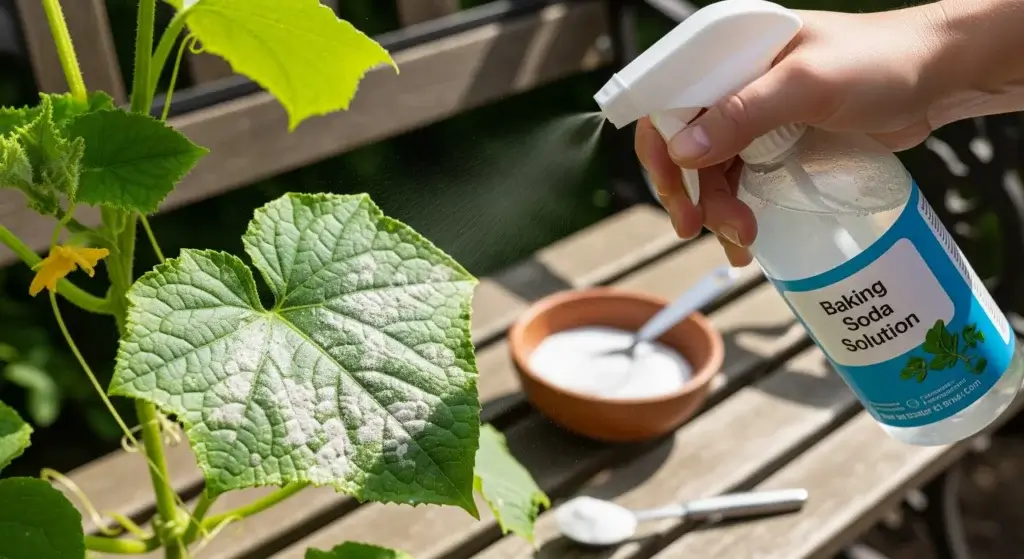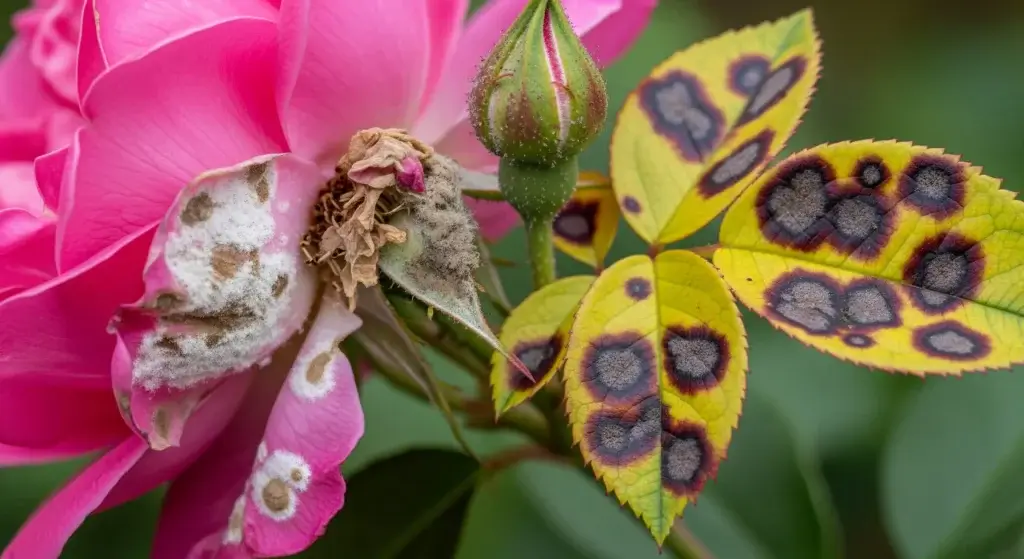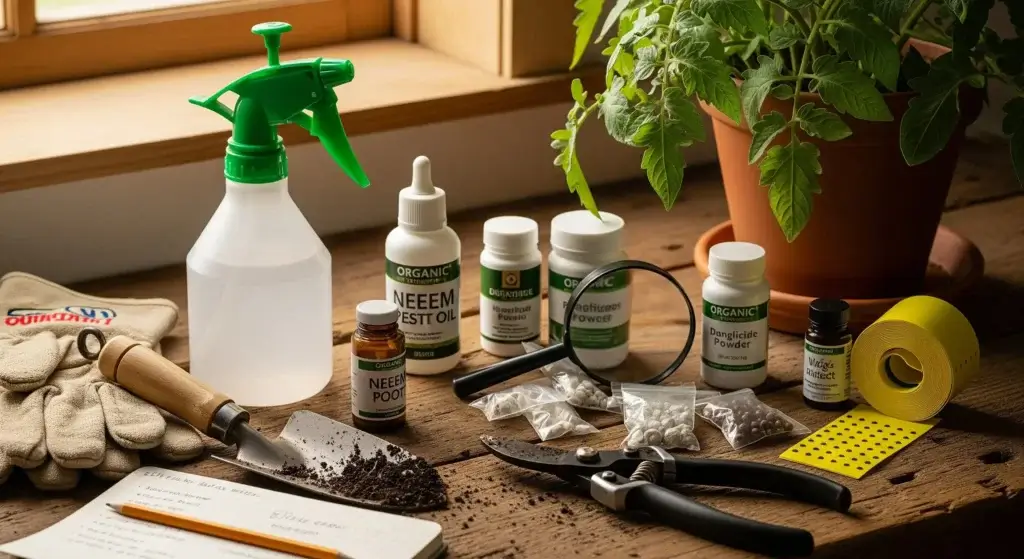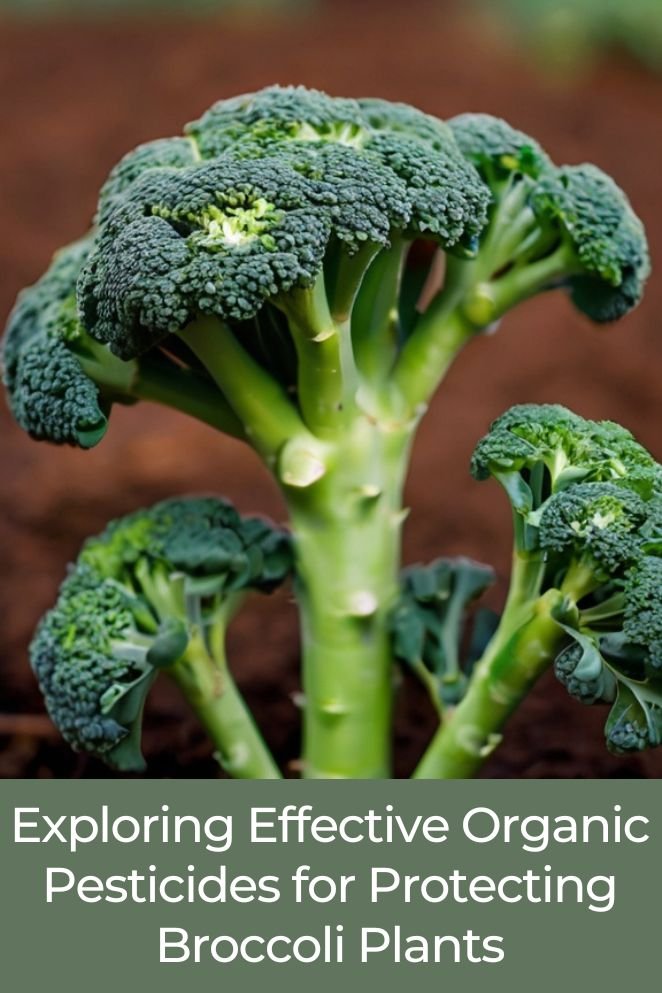
Growing broccoli can be incredibly rewarding, but pesky pests often try to sabotage our efforts.
Fortunately, you don’t have to resort to harsh chemicals to protect your precious crops.
In this guide, we’ll explore the wonders of organic pesticides for broccoli plants, ensuring your garden stays healthy and thriving.
Benefits of Using Organic Pesticides for Broccoli Plants
Broccoli is a fantastic vegetable packed with vitamins and nutrients.
Unfortunately, these tasty florets can be a target for a variety of pests.
Luckily, organic pesticides offer a safe and effective way to protect your broccoli crop without harming your health or the environment.
Here’s a closer look at the advantages of using organic pesticides for your broccoli plants:
- Read also: Optimizing Spacing for Broccoli Plants
- Read also: Protecting Your Broccoli: Common Broccoli Diseases
Safety for you and your family
Organic pesticides are derived from natural ingredients like neem oil or pyrethrum, minimizing the risk of harmful residues on your broccoli.
Protection of beneficial insects
Unlike some conventional pesticides, organic options are often less toxic to beneficial insects like ladybugs and lacewings.
These natural predators help keep pest populations in check without additional intervention.
Environmentally friendly
Organic pesticides typically break down quickly in the environment and have a lower impact on soil health and water quality compared to some conventional options.
This protects the ecosystem surrounding your garden.
Sustainable gardening
By promoting a healthy balance in your garden’s ecosystem, organic pest control encourages long-term sustainability.
This reduces reliance on chemical solutions and fosters a natural cycle of pest control.
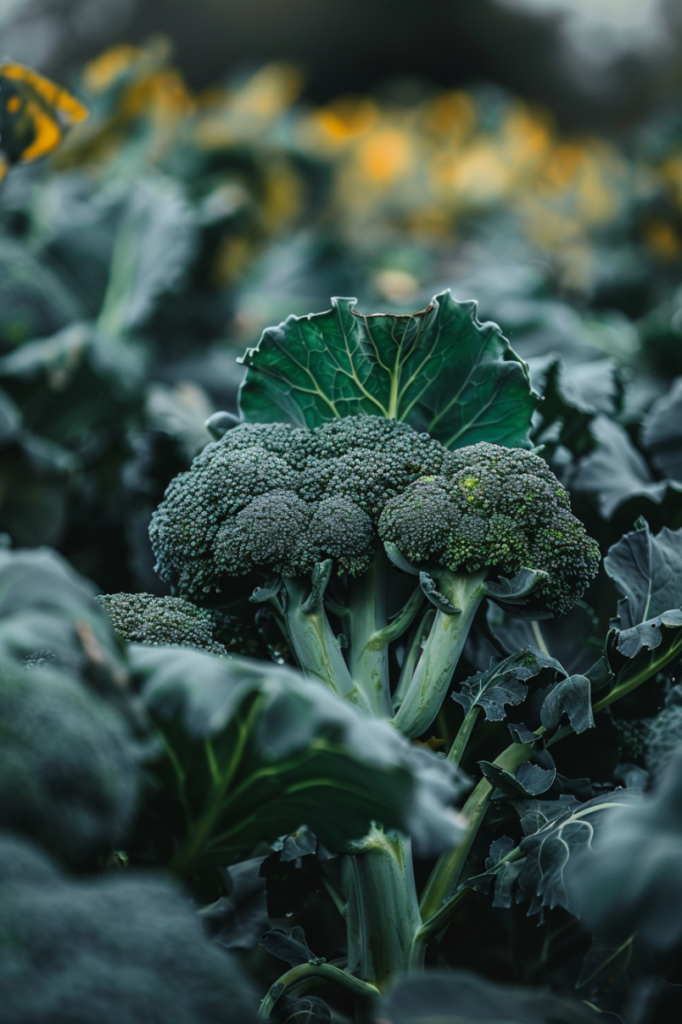
Common Pests that Attack Broccoli Plants
Broccoli plants are a delicious and nutritious addition to any garden, but they can be susceptible to a number of pests.
Here are some of the most common pests that attack broccoli plants:
Aphids
These tiny, soft-bodied insects suck the sap out of leaves, causing them to curl and become discolored.
Aphids can also transmit diseases to your plants.
Cabbage Loopers
The larvae of the cabbage looper moth, these green inchworms can munch large holes in your broccoli leaves.
They are particularly fond of the florets.
Cabbage worms
These green caterpillars are the offspring of various white butterflies. They can quickly skeletonize broccoli leaves.
Cutworms
These plump, gray caterpillars cut seedlings off at the ground level. They are most active at night.
Diamondback moth caterpillars
These small, greenish caterpillars are known for their zigzag feeding pattern. They can cause significant damage to broccoli leaves and florets.
Flea beetles
These tiny black jumping beetles leave small holes in the leaves of broccoli plants. While they typically don’t cause major damage, they can stunt the growth of young plants.
Harlequin bugs
These brightly colored bugs suck the sap out of broccoli plants, causing the leaves to wilt and die.
Organic Pesticides for Broccoli Pest Control
Organic pesticides offer a safe and effective way to control pests on your broccoli plants without harming your health or the environment.
Here’s a look at some popular organic options for common broccoli pests:
Neem oil
Derived from the neem tree, neem oil acts as a potent insecticide, disrupting the growth and reproduction of various pests while deterring them from feeding on your broccoli plants.
Insecticidal soap
Gentle yet effective, insecticidal soap suffocates soft-bodied pests like aphids and spider mites upon contact, offering a natural solution to pest infestations.
Garlic spray
Harness the power of garlic to repel pests with a homemade garlic spray.
Simply blend garlic cloves with water and spray it on your broccoli plants to deter unwanted visitors.
Diatomaceous earth
Made from fossilized diatoms, diatomaceous earth is a natural insecticide that punctures the exoskeletons of pests, leading to dehydration and death.
Pyrethrin sprays
Pyrethrins, derived from chrysanthemum flowers, are highly effective against a wide range of pests, including caterpillars, beetles, and aphids.
Essential oil blends
Create your own organic pesticide by blending essential oils such as peppermint, rosemary, and thyme with water and a mild detergent.
This aromatic concoction repels pests while leaving your broccoli smelling delightful.
Bacillus thuringiensis (Bt)
Bt is a naturally occurring bacterium that targets specific pests like cabbage loopers and caterpillars, making it an ideal choice for organic pest control.
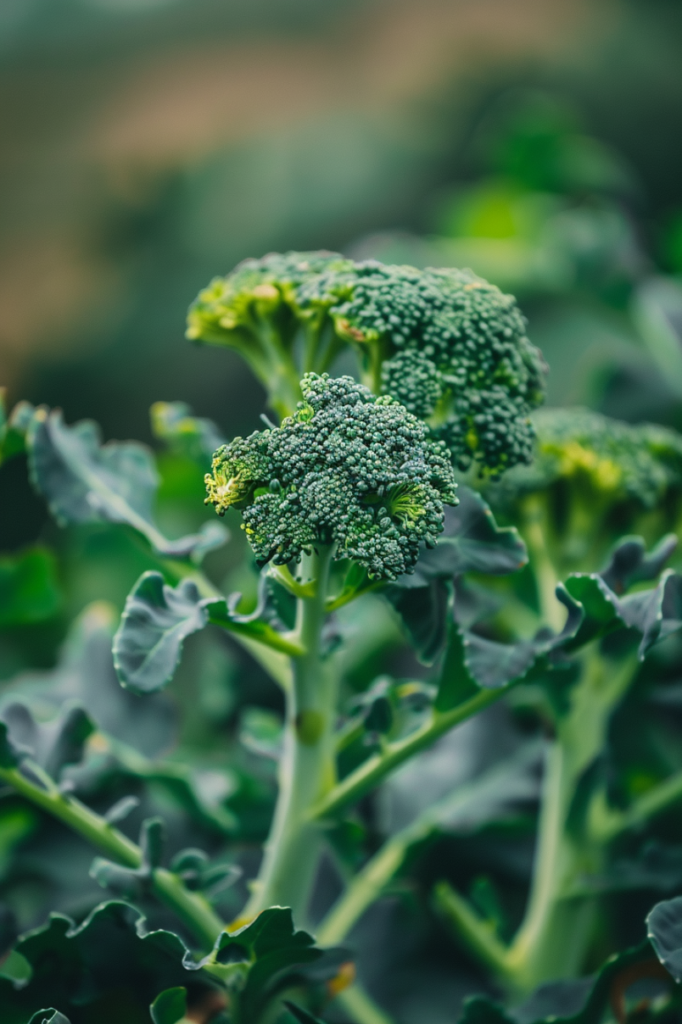
How to Prevent Pests from Damaging Broccoli Plants
Protecting your broccoli plants from pests involves more than just applying organic pesticides.
Implementing preventive measures can significantly reduce the risk of pest damage and promote a healthy garden ecosystem.
Here are some strategies to prevent pests from damaging your broccoli plants:
Strong seedlings
Start with healthy, vigorous seedlings. Weak plants are more susceptible to pest damage.
Crop rotation
Rotate your crops each growing season to disrupt the life cycles of pests and prevent the buildup of pest populations in the soil.
Avoid planting broccoli in the same spot year after year, as this can attract pests that have become accustomed to the environment.
Companion planting
Companion planting involves strategically interplanting different species to deter pests and attract beneficial insects.
Planting aromatic herbs like basil, dill, and cilantro near your broccoli can confuse pests with their strong scents and attract predatory insects that feed on pests.
Additionally, planting flowers like marigolds and nasturtiums can repel pests and add beauty to your garden.
Physical barriers
Use physical barriers such as row covers and netting to protect your broccoli plants from pests like cabbage moths and flea beetles.
Row covers are lightweight fabrics that allow sunlight and water to penetrate while keeping pests at bay.
Secure row covers over your broccoli plants early in the season to prevent pest infestations and remove them once the plants begin to flower to allow for pollination.
Good garden hygiene
Maintain proper hygiene in your garden by removing plant debris, weeds, and fallen leaves that can harbor pests and diseases.
Regularly clean your gardening tools and equipment to prevent the spread of pests and pathogens between plants.
Keep your garden tidy and free of clutter to create an inhospitable environment for pests and encourage beneficial insects to thrive.
Healthy soil management
Healthy soil is the foundation of a thriving garden ecosystem.
Amend your soil with compost and organic matter to improve its structure and fertility, providing your broccoli plants with the nutrients they need to grow strong and resilient.
Timely planting and harvesting
Plant your broccoli at the appropriate time according to your local climate and growing conditions to minimize exposure to pests and diseases.
Start seeds indoors or plant transplants in the garden when conditions are favorable for growth.
Harvest your broccoli heads promptly when they reach maturity to prevent overripening and attract pests.
Early detection
Regularly inspect your broccoli plants for signs of pest damage. Early intervention is key!
The sooner you identify a pest problem, the easier it is to control it organically.
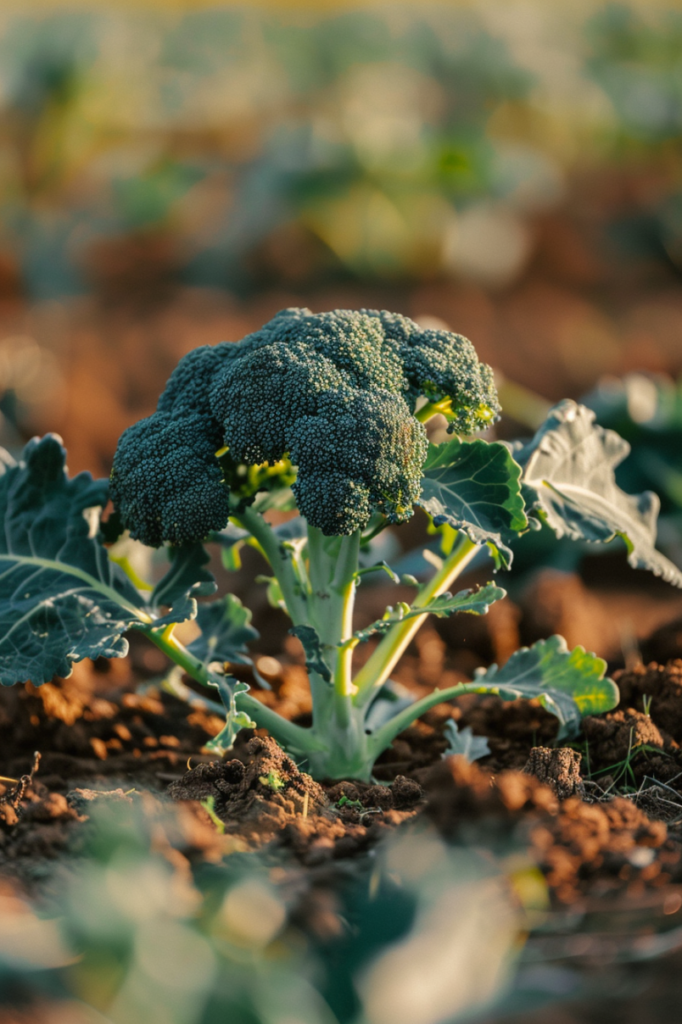
- Read also: Homemade Compost for Growing Broccoli
- Read also: Effective Homemade Spider Mite Killer
Conclusion
With the right arsenal of organic pesticides and preventive strategies, you can protect your broccoli plants from pesky invaders while promoting a healthy and sustainable garden ecosystem.
Embrace the power of nature to nurture thriving crops and enjoy bountiful harvests without compromising on environmental integrity.
FAQs
While organic pesticides may require more frequent application, they can be equally effective in controlling pest populations without harming beneficial insects or the environment.
Yes, many organic pesticides can be easily concocted using common household ingredients such as garlic, essential oils, and soap. Just be sure to follow recipes and application instructions carefully.
When used as directed, organic pesticides are generally safe for broccoli plants. However, it’s essential to avoid overapplication and always conduct a patch test on a small area before treating your entire garden.

